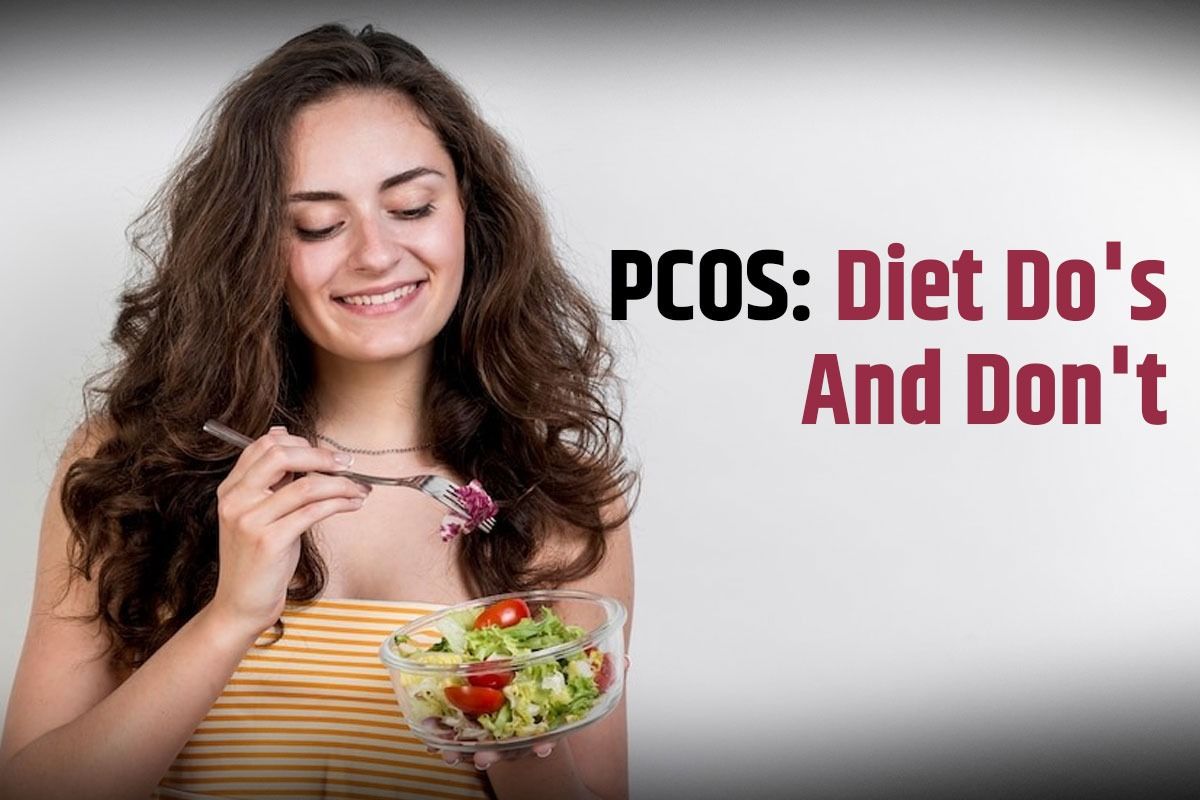
Polycystic Ovary Syndrome or PCOS is a health condition that affects about 5% – 30 % of women of reproductive age worldwide. The exact cause is unknown, but it is considered a hormonal problem that may enlarge the ovaries and cause a small cyst on the outer edges. It is frequently noticed that genetics & environmental factors are involved in the development of PCOS.Also Read – Shruti Haasan Posts About Struggle With PCOS And Endometriosis: ‘My Body Isn’t Perfect…But My Heart is’
It is thus, a leading cause of female infertility & is responsible for a number of symptoms like weight gain, fatigue, hirsutism, acne, bloating, sleep problems, etc which affects the body physically as well as emotionally. Having high levels of insulin is believed to increase androgens in women with PCOS and worsen your risk of many health complications like diabetes mellitus, stroke, infertility, depression, anxiety, and other issues. However, with a well-balanced diet & changes in lifestyle, you can help manage your PCOS. Also Read – Alaya F on Her Struggle With PCOS: ‘I have to Stay Fit to Keep My Skin Good And Hormones in Check’
BEST METHODS TO CONTROL PCOS THROUGH LIFESTYLE CHANGES ARE:
- Keeping yourself active: If you keep yourself active your blood sugar levels will be under control.
- Lose Weight: Losing weight will improve your health & might help you reverse PCOS & will also avoid infertility.
- Go Gluten-free: Reducing your intake of milk & milk products to 10%-15% or opting for low-fat milk like almond milk instead of full-fat milk will surely help you reverse PCOS.
- Reduce Carb Intake: Low fat & high carbohydrate meals pose high insulin risks. It is advisable to opt for complex carbs instead of simple carbs.
According to Kareena Gambhir, Nutritionist at Chicnutrix, Vitamins and minerals are very crucial part of any healthy eating plan and are often the most overlooked. According to studies, there have been correlations made between vitamin deficiencies and PCOS. Vitamins have important functions within the body. For example, vitamin D deficiency has repeatedly been linked to insulin resistance, 3 PCOS, 4, and depression. Therefore, Vitamins & Minerals like Vitamin B12, Vitamin A, Vitamin B, Vitamin C, Vitamin D, Vitamin E, Folate, Iron, Calcium, Zinc & magnesium are the most important Vitamins & Minerals needed by the body. Also Read – PCOS Myths: 7 Most Common Facts Related to PCOS Every Women Should Stop Believing
Now, the main question is, what to eat & what to avoid?
FOODS TO EAT
- Complex carbs like Quinoa, Barley, Brown Rice, Oats, Jowar & Ragi.
- Healthy fats like olive oil, coconut oil, nuts & seeds, omega-3 fats &, etc.
- High fibre veggies like broccoli, cauliflower, kale, spinach, peppers, beans, carrots, dried beans & other leafy vegetables.
- Lean proteins like fish, chicken, eggs, peas, tofu &, etc.
- Lentils like split dals, Kala channa, chickpeas & other whole grains.
- Anti-inflammatory herbs like turmeric, ashwagandha, cayenne, cumin, ginger, rosemary, Shatavari, fenugreek & tulsi.
FOODS TO AVOID
- High processed & junk food items
- Alcohol & smoking
- Desserts & bakery items
- Maida, white bread, white rice, potato & other food items with a high glycemic index
- Dairy products
As the severity of PCOS can vary from person to person, treatment plans are highly individual. It’s extremely important to talk about PCOS with your family or your doctor to take the right measures at right time.
Stay connected with us on social media platform for instant update click here to join our Twitter, & Facebook
We are now on Telegram. Click here to join our channel (@TechiUpdate) and stay updated with the latest Technology headlines.
For all the latest Lifestyle News Click Here
